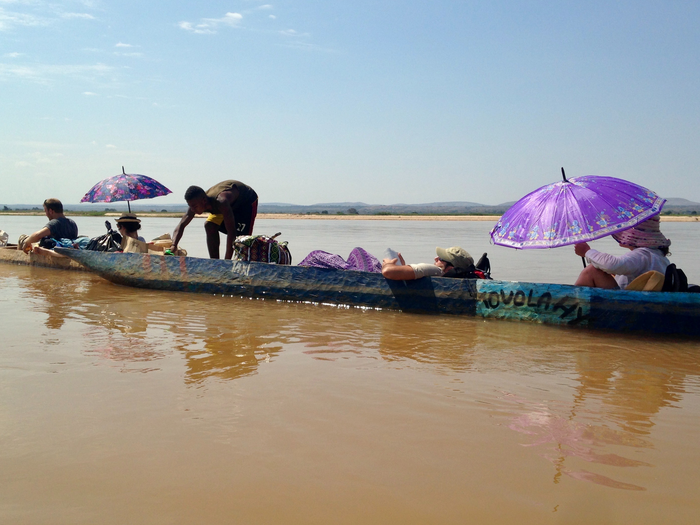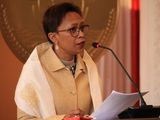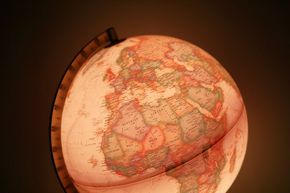Malagasy women can be great entrepreneurs, with a very strong will and courage. Conscious of the need for the survival of their families, they have the capacity to create and find activities: small businesses, catering, manufacturing and sales of handicrafts or agriculture – activities which are closely or remotely linked to the tourism sector.
Madagascar has about 28 million people, with 80 percent of the population living in rural areas. Our tourism sector contributes seven percent to the GDP. It provides approximately 44,000 direct jobs and 1,500,000 indirect jobs. Tourism in Madagascar is still ‘mass tourism’, following the objectives of the government. It is generally beach tourism, relaxation and discovery of fauna and flora. A few operators offer more specialized types of tourism such as nature observation, cultural tourism, or rural tourism. Sustainable tourism is still largely unknown.
When we talk about tourism, we are not just talking about hotels, tourist offers or activities, but about a whole value chain. We are talking about activities that are intertwined with each other, involving simple farmers and craftspeople, drivers, guides, housekeeping and catering staff as well as the management of hotels or tour operators. Women play numerous, varied and important roles in this sector, although they are often not highlighted. They keep their place "behind the curtain". Women and girls are particularly numerous in informal "survival" activities. In the informal sector, the majority of self-employed workers are women.
Persisting inequalities
Gender inequality persists in the country due to historical, cultural, socio-economic and political factors. Women still experience poverty, discrimination and exploitation more than men. In Madagascar, women are generally excluded from economic and political life, and often still suffer from the weight of stereotypes and socio-cultural norms that hold them back in their ambitions. This is generally the case in the cities where power and connections are required to get a good job. Men prefer men when it comes to filling vacancies, as stereotypes still dominate. According to this prejudices, women are considered as fragile, emotional, and incapable of managing.
Experiences as a woman entrepreneur
It requires a strong, combative character in order not to become a victim of non-consideration in predominantly male environments. I myself manage an incoming tour operator in Antananarivo, specialised in "tailor-made" programs, but especially in responsible and solidarity tourism. When I founded the company in September 2010, it was very difficult, because in addition to being a woman, I look younger than my age. Most of the time, the interlocutors did not take me seriously. They considered me too visionary, incapable, and did not trust. But today I have gained confidence through passion, perseverance and various interactions with people from different backgrounds and cultures. I am active in highlighting the intimate link of tourism to local development, to the preservation of the environment and to the value of women.
Women in the tourism sector
In the last few years, we have seen an improvement in the situation of women in the society, and especially in tourism. In the whole value chain, the number of women is largely higher than that of men, in all categories and types of work. Women are present everywhere in the tourism sector. It offers them opportunities to be active in different fields, in their own ways. They manage to find or create small jobs, such as catering or reception.
In rural areas, too, women are developing more and more activities such as handicrafts, dressmaking, etc. In addition to all the household chores that are automatically assigned to them, they are also taking up work normally reserved for men, such as agriculture. Given that the overall survival situation in Madagascar is precarious, they are taking care of their homes, their husbands and their children, and additionally they have become aware of their share of responsibility in contributing to the family income. Precariousness has always existed in Madagascar. But this has been accentuated due to the Covid pandemic. The whole economy is down and many middle class workers have lost their jobs.
Women today are more easily accepted, and are increasingly free to choose their activities. However, they are still not sufficiently recognized and their potential is not developed, as they often remain in the shadows. Women in the tourism sector do not experience the same oppression as women working in other activities that are still dominated by men, especially in the big cities. On the contrary, many women play important roles in tourism today, as founders, directors, or managers, but still it is their valorisation that is missing.
Getting out of the crisis
Now the pandemic left us in a very difficult situation. There has never been any subsidy, recovery plans or revival of the economy in Madagascar from the government. The financial situation remains very difficult in the tourism sector, at the company and personal levels.
I have enrolled in various training courses, participated in workshops and committees working on corporate social responsibility, the environment and the development of rural communities. All these activities were voluntary, but I was able to fill my time during these two years. I learned a lot and widened my networks.
Generally, during the pandemic, women’s activities, especially in rural areas, have developed a lot, because it was necessary for women to find alternatives to help their husbands providing the family incomes. They developed activities which were within their reach, learning according to the knowledge of the elders, adapted existing products on the spot. More and more groups, associations and women's movements are being created today. And the tourism sector is not left behind.





